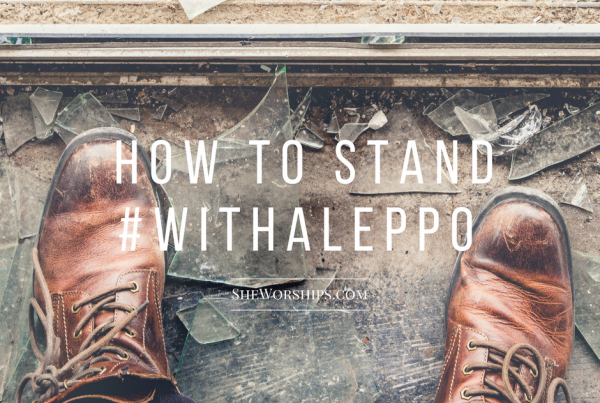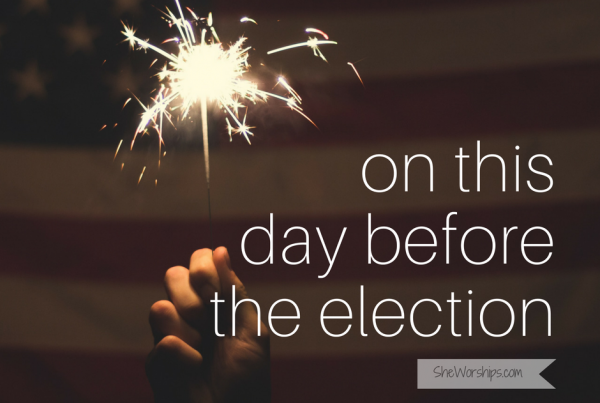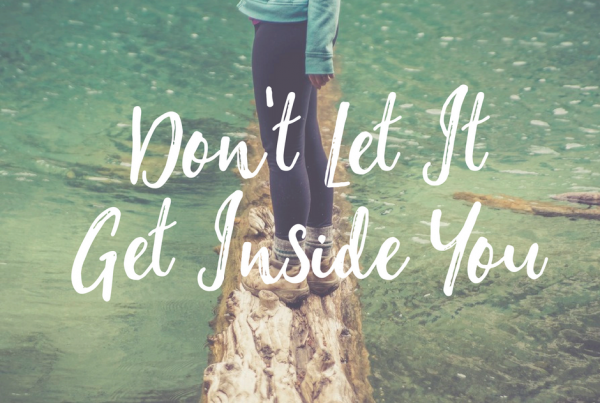Two years ago I was pregnant with my son Isaac and I had a “bump book” to document those 9 months. The book had a place for baby bump photos, sections to record my food cravings and food aversions, dates to remember when I first felt the baby move, and other fun milestones.
One section of the book was devoted to the top news stories from my pregnancy. I still remember coming to that page, because I didn’t want to write down the top news story. It didn’t fit with the rest of my book. Everything else in there was happy and exciting. But this particular story was tragic and controversial. So, I wrote down the second biggest news story at the time: The 2012 Summer Olympics.
That seemed fitting.
However my conscience had already been pricked. I knew it was important to remember that other news story, so right beside “2012 Summer Olympics” I wrote this:
The Trayvon Martin Case.
It’s been two years since then, and I am pregnant again. Two years isn’t long, but my pregnancies feel like historical mile markers by which to gauge our nation’s growth. Since my last child was born, has the world changed at all?
Judging by today’s headlines, it doesn’t seem like it.
Last week, an unarmed, black teen named Michael Brown was shot to death by a police officer in Ferguson, MO. Although many of the details are still emerging, this event was like a spark on dry kindling. Long simmering rage and fear exploded into a loud cry for justice as American citizens flooded the streets of Ferguson in protest.
Because two years later, not much has changed.
When Trayvon Martin was killed, I remember the stark contrast on my Facebook feed between my black friends’ and my white friends’ responses. My black friends were devastated and angry. They wrote about the challenges of being black and male in this country. They grieved. They called for change.
My white friends were mostly silent. Trayvon Martin wasn’t even on some people’s radar. The few who did say something about it often defended George Zimmerman, or criticized the angry response to the case.
Then there was the response of our churches. I have a number of black friends who are pastors and they all preached about Trayvon Martin in their churches, especially after George Zimmerman’s acquittal. It would have been unimaginable to hold worship without helping church members navigate questions like, “How do we persevere in hope when racial injustice tempts us to grow bitter or despair?”
White churches, on the other hand, mostly stuck to their already scheduled preaching calendars. I never heard it mentioned in church the entire duration of the case.
Two years later, not much has changed.
I haven’t written anything about Ferguson until now because I wasn’t really sure what to say. Back when George Zimmerman was acquitted, I wrote this post challenging white Christians to listen to our black brothers and sisters. But I didn’t know what to add to it, or how to say it differently.
Even so, this is one of those moments when silence feels like a sin. If I believe the Body of Christ is, in fact, a body–that we are all connected, that what affects one of us affects all of us, and that we only serve in power when we serve in unity–then we need to pay attention to our brothers and sisters of color who are crying out to be heard.
For days I’ve been wracking my brain trying to think: For all the young, stay-at-home moms who feel like Ferguson is a million miles away, to all the white Christians who care about Ferguson and detest racism, but are so busy with kids, cleaning the house, running errands, and just getting through the day that they haven’t been able to give it much thought, what do I want to say to them?
Well I finally figured it out. This is what I want to say:
You are a part of this. And not in some abstract “you’re a human, they’re a human” kind of way. If you live in a mostly white neighborhood, then it’s very likely that young, black men feel unsafe walking down your street. Unsafe in your neighborhood. Isn’t that interesting? White people get scared walking through black neighborhoods, but the reverse can also be true.
That’s because every time a kid like Trayvon Martin or Michael Brown is killed, and your black friends cry out, “That could have been me!” they’re not exaggerating. We live in a country where black parents must teach their sons how to behave in white neighborhoods and around police, because being at the wrong place at the wrong time can literally get you killed if your skin is the wrong color.
That means the next time you invite your son’s classmate to your house, if he is a person of color, his parents might sit him down and remind him how to avoid looking suspicious, how to avoid putting the neighbors on edge. How to stay safe around people who are frightened when they see a black man in front of their house.
So no, Ferguson is not a far away issue. The same environment that gave rise to Michael Brown’s death is present everywhere in the United States. White Americans, everyone of us, participate in an atmosphere that is challenging at best and deadly at worst for our black brothers and sisters.
What then, do we do, so that two years from now we aren’t faced with the same, horrible tragedy?
Again, I find myself a bit tongue-tied. Racism in our country is complicated and I won’t pretend to have all the answers. But here are a few suggestions:
Listen. Pay attention to what your black friends are saying. Ask them what they think about Ferguson. Ask them what it’s like to be black in this country. Ask them what they think it would take for our country to change. Then, listen. Don’t push back, don’t offer your opinion, just listen.
Pray. Pray for peace and reconciliation in our country. But also pray for yourself. Pray that God would search your heart and your life, and reveal any part of yourself that perpetuates the division in our country and in our churches.
Do something. Now, I don’t know what this will look like in your life. For me, it means using my platform as a writer to bring awareness. For some of you, it simply means educating yourself and getting up to speed on what’s happening. For others, it means forming friendships with people who look different from you: Get to know the parents of your children’s classmates. Schedule play dates with families of a different race. Invite your neighbors or co-workers over for a cookout.
The important thing is that you do something that puts you in a position to hear and learn, because change begins with you. We are all equal members of the Body of Christ, which means that you are just as responsible for mending this wound as your church leaders. That’s why, when I think about the intersection of race and the church in America, I can’t help but remember the sobering indictment that “faith without works is dead” (James 2:16). This is a “rubber meets the road” kind of issue for American Christians.
So listen, pray, and do something. But don’t be silent. Jesus spoke out for the poor, the sick, the marginalized. He spoke out for you. Now, go and do likewise.
Sharon
Sharon







So thankful for your post. I’m a African American woman who attends a predominately white church. I noticed the same, outrage from my black friends and silence from my white friends. I wonder if they really care. It is my prayer that just as God raised up God-fearing white people to help combat slavery and Jim Crow (a lot whom risked their lives for black people because of their faith in Jesus and disdain for injustice), that He would stir in the hearts of my white brothers and sisters to stand for what is right. Praising God that you have taken this step of faith to say something. I pray it touches the hearts of those who read. May the Holy Spirit continue to guide you. Much love.
Latoya, Does your church mourn the murder of the white 9 year old child, stabbed 6 times by a 13 year old black boy in our town while at a playground? Does it mourn the white urban father whose head was stomped into cement by 3 black youths until he died, at another playground, both in the same week? No riots here, only media reports along the lines of “How could this black child be so mentally ill?’ and “Those are good boys who just made a mistake.” Of course we care about human pain, but this is prejudged and their noise is falling on deaf ears until we have media fairness related to race.
Sam, I think we can all agree that all murder is equally wicked in the sight of God, and equally a sign of the broken world in which we live. However, not all crimes committed by opposite races are, inherently, racially motivated. Many, MANY of the murders of unarmed black men are racially motivated. That is why there is a time to call out societal or systemic sins that are behind some of these crimes. That doesn’t mean we shouldn’t mourn the other injustices you named, but we should not conflate these incidents as necessarily being the same.
This post was very well written, Sharon. I appreciate your perspective and your wisdom in all of this. Everything you’ve said is right on target.
Your response to the above comment is equally insightful. One of the reasons African Americans feel so much anger and frustration is when we finally add our voice to the conversation we get the “well what about what you did” response. Let’s all seek first to understand, then to be understood.
It is presumptious to decide why he was killed. No one knows that yet. Original ‘reports’ (shot in back) have been proven wrong. Your intentions are good, but your blog seems sanctimonious and it presumes a lot. There is NO trend or epidemic of black people being killed because they are black. Maybe because they just robbed a store and had the cop flat on his back in his capcar? You are falling for what certain media want you to believe. I am a Christian that has researched racial matters extensively, and I live in an urban, ethnically mixed environment by choice. I understand. Rioting is never understandable, acceptable or productive, and your blog gives its blessing to such behavior. Kendra, we are frustrated with some things, too: when a black 13 year old kills a white 9 year old, no one can be angry. We must just feel sorry that the 13 year old has been wronged enough to do this. When it is reversed, we get Ferguson. Hope you see the irony.
Sam, I don’t think you’re really hearing me, or my article. All I am asking for is for white people to listen to the stories and experiences of black people, in person, across dinner tables and in living rooms. Really stop and hear them. It is one thing to research racial matters and come to your own conclusions, but sit down with people and ask them to share their perspectives. Don’t push back, don’t accuse people of “listening to the media” (which you have no way of knowing) but simply listen. As Scripture exhorts us, be slow to speak and quick to listen. This blog post was birthed out of that very listening.
What I am hearing you say is that what happened is racially motivated. I haven’t seen anything that shows me that this had to do with race. I think that it was a young kid showing off for his friends and being disrespectful to a police officer. Unfortunately it had life changing consequences.
Allison, I would invite you to reread my post more carefully, because nowhere do I say anything about motives. I simply identify a pattern. Ironically, you made more assumptions about motives than I did. However, even if you are right about Brown’s motives, it’s worth remembering that the appropriate response by a trained officer to mouthing off is not lethal force. That disproportionate response is not only the grossest sort of police negligence, but is also illegal.
Thank you for this Sharon.
This post is very meaningful.
I have prayed all night about your post because I felt so strongly about replying. I feel voices blaming one side over the other are what is dividing our country farther and farther away from peace.
In tears over how much you get it…wonderfully written. Thank you!
You said what a lot of people want to say but are to afraid…most people fear other people more than they fear God…we all at any given time can fall to pleasing those close to us opposed to doing what’s right in the eyes of God
Really no comparison at all. White on black violence and racism has been going on for 400 years, and is still going on. It’s one thing when you have civilians attacking other civilians. Atleast then a case can be opened. But when the very institutions that are there to protect you start to behave in prejudice ways, it’s a completely different story. How often do we see police brutality cases against the white population?
There was a young, white, unarmed college student shot and killed by a black security guard in Mobile, Alabama a year or so ago. Where was the outcry for that incident? BOTH incidents are wrong. But there should be equal outcry (NOT rioting, but coverage, etc.) on both sides of the color spectrum.
Cheryl, I would direct you to a comment I posted above, with the reminder that all murders are equally tragic and worthy of condemnation, howeve, some murders are symptomatic of a larger societal dysfunction. The protests in Ferguson are about that larger, societal problem, not simply this one incident.
Sharon, I think this post has some relevant points that should be considered deeply by white Christians.
I would be curious to know what your thoughts are on a blog like this: http://themattwalshblog.com/2014/08/18/dont-know-happened-michael-brown-stop-pretending/
Zach, Matt Walsh is raising a critique that a lot of white Americans are raising, which is essentially “wait for all the facts.” In response to that criticism, I would direct you to these two excellent blog posts by black evangelical pastors. One appeared on The Gospel Coalition, and the other on Christianity Today. They are both worth taking very seriously, and they exemplify the problem with Matt Walsh’s approach:
http://thegospelcoalition.org/blogs/thabitianyabwile/2014/08/20/why-we-never-wait-for-all-the-facts-before-we-speak/?utm_content=buffere59d5&utm_medium=social&utm_source=facebook.com&utm_campaign=buffer
http://www.christianitytoday.com/edstetzer/2014/august/its-time-to-listen.html?&visit_source=twitter